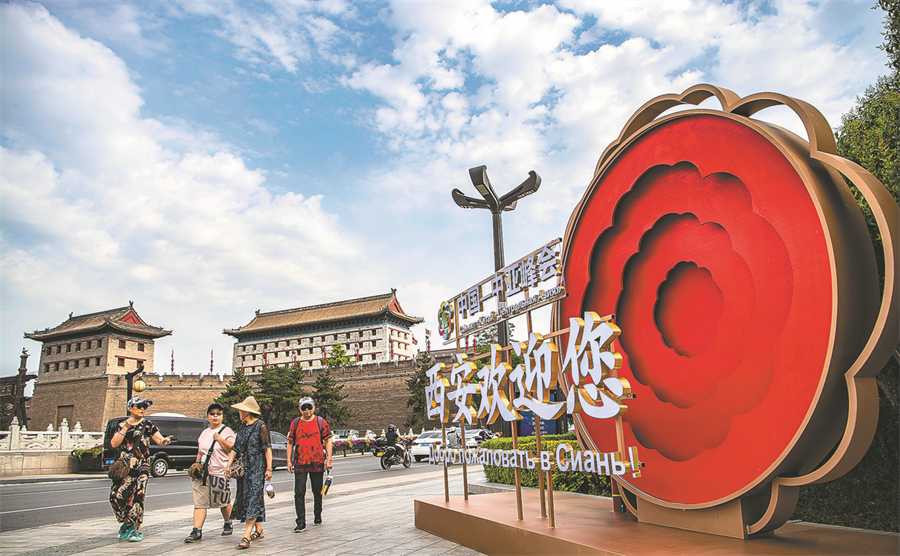Xi'an seeks greater tourism cooperation

People walk past a display welcoming delegates to the China-Central Asia Summit in the ancient city of Xi'an, Shaanxi province, on Wednesday. The two-day summit ends on Friday. [Photo provided to China Daily]
Xi'an, the capital of Shaanxi province, is working with Central Asian countries to develop tourism based on intangible cultural resources along the ancient Silk Road in order to better reflect the region's rich history.
The latest example is an agreement signed earlier this month on promoting the tourism resources of the Uzbek city of Samarkand in Xi'an.
"It was agreed that an area at the Silk Road Paradise scenic spot will be specially used to display the traditional architecture of Samarkand and present Uzbek cultural performances," Zhou Bing, chairman of Shaanxi Tourism Group, said at a news conference on Thursday.
Xi'an used to be the capital of 13 dynasties, including the prosperous Zhou, Qin, Han and Tang dynasties. Zhou said the group is seeking to present this rich historical legacy to tourists in specific ways such as theme parks and musical performances.
For example, a musical named Sound of the Silk Road has been produced to present the culture and history of various countries along the Silk Road during the Han Dynasty (206 BC-AD 220).
The development of cultural tourism along the Silk Road has gained momentum since the Belt and Road Initiative was proposed in 2013. The Shaanxi provincial government has introduced guidelines urging greater efforts to design tour routes with Xi'an as the starting point and other cultural tourism projects.
According to Zhou, the Shaanxi Tourism Group will organize tour groups from Xi'an to cities with rich tourism resources in Uzbekistan and other Central Asian countries.
Visits to Uzbekistan and Kazakhstan have been facilitated after the two countries introduced 14-day visa-free policies for Chinese citizens.
Zheng Hao, an official with the Ministry of Culture and Tourism, said that many provinces and regions in China have given full play to their strengths in terms of their geographical location and resources to engage in culture and tourism exchanges and cooperation with Central Asian countries.
Zheng pointed out that, in recent years, China has invited Central Asian countries to participate in the China International Tourism Fair, and China has also been an active participant in international tourism exhibitions in Central Asian countries.
"China-Central Asia tourism cooperation is distinctive and enjoys broad prospects," he said.
























